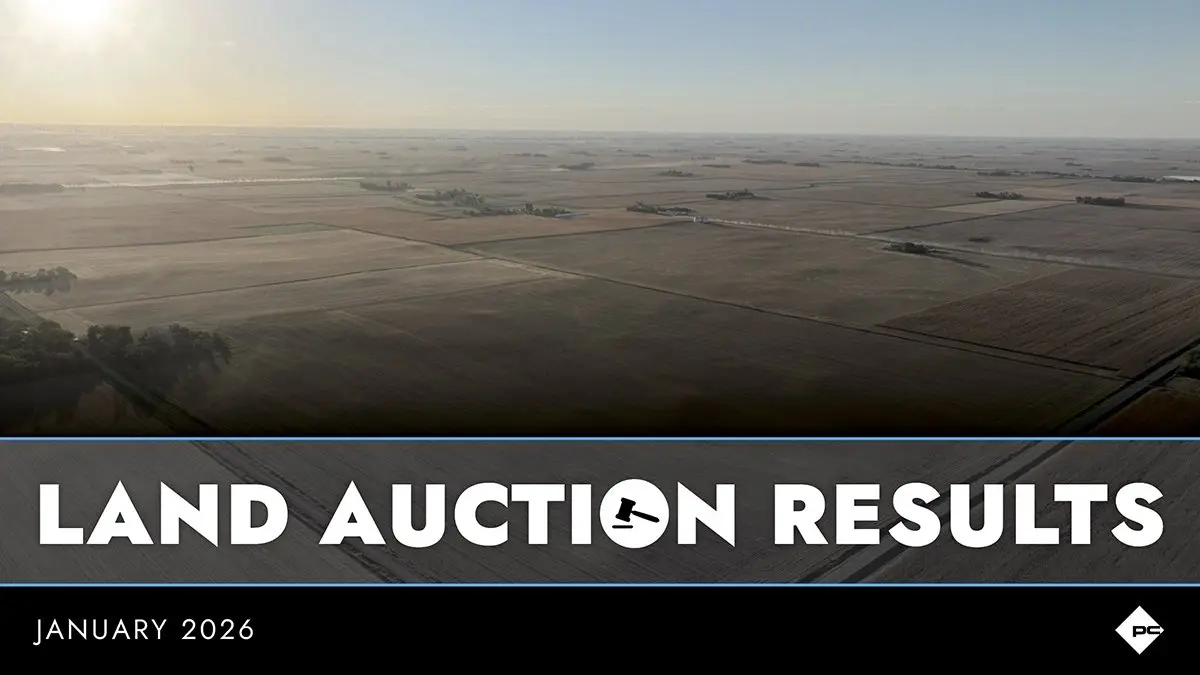The Land Investment Monthly is a round-up of articles and headlines published by the farm press, business media and financial publications with insights into buying, selling or investing in farmland, recreational ground or development ground.
John Deere
Deere & Co., which has long extended credit to farmers for equipment purchases, has also extended more than $2 billion in short-term credit to finance crop supplies. Citing an article in the Wall Street Journal, the Business Record reports that is enough to make the manufacturer of tractors and combines the No. 5 ag lender in the nation. Read more.
Land Sharks
Kevin O’Leary, star of ABC’s Shark Tank, will deliver the keynote address at the 2018 Land Investment Expo on January 26, in West Des Moines, Iowa. The Land Expo, now in its 11th year, is a local, regional and national event that is recognized globally for bringing fresh topics, ideas and speakers to the forefront of land investing and ownership. It features keynotes by some of the most recognizable names in the industry, with multiple breakout sessions and a one-of-a-kind forum for discussions related to the farm economy, agricultural real estate values and land investment vehicles. More information including how to register can be found LandInvestmentExpo.com. Read more.
Foreign Acres
Foreign entities as of 2014 owned 27.3 million acres of farmland – up from 13.7 million in 2004 – with China, Canada and the Netherlands taking lead roles, according to examinations of USDA data analyzed by the Midwest Center for Investigative Reporting. The Des Moines Register and Modern Farmer report that is more American farmland than the size of Tennessee. The buyers, according to U.S. News and World Reports, have included wind energy firms, solar power companies and real estate investment consortiums. Some speculate that foreign interests could drive up the price of food, force out American farmers, or stop Americans from securing that land again. Read more.
Capital Requirement
The cost of becoming a farmer and starting to produce from scratch can run into the millions. Successful Farming takes a look at the capital requirement of someone with no family farm and the aspiration to farm grain full-time in Iowa, Indiana or Illinois. CPA Shawn Williamson, shedding light on some of the barriers to entry for entrepreneurs, considers the need for education, equipment, operating capital and agricultural real estate. How will young entrepreneurs fund the enterprise? Read more.
Hill of Beans
A $4.5 billion deal to buy 460 million bushels of soybeans – nearly all of Iowa’s soybean production – was penned this month as a Chinese delegation signed commitments in Des Moines. The deal for 12.53 million metric tons of soybeans is “huge,” representing “10 percent of total U.S. crop purchases.” A signing ceremony in Des Moines was hosted by the U.S. Soybean Export Council. KCCI-TV reports. Read more.
Water Rules
The U.S. Environmental Protection Agency and Army Corps of Engineers released a proposal to repeal the 2015 Clean Water Rule. Reuters reports that it’s the latest move by the Trump administration to unwind environmental regulations put in place under former President Barack Obama. The rule updated the federal Clean Water Act to define what types of waterways – including the nation’s streams, rivers and other bodies – can be regulated by the federal government. The move to rescind the rule has been praised by agriculture groups and energy industries, which said it gives regulators too much authority. Read more.
Next Gen
With a focus on students of agriculture and sustainability, UCONN Magazine considers the next generation of farming through the lens of enrollees into the land-grant college’s agricultural-related programs. Enrollment at the University of Connecticut’s College of Agriculture, Health, and Natural Resources is up by more than 50 percent in the past 10 years as students have demonstrated greater concern for the environment and more interest in food production. Advancements in technology are helping put a new face on beginning farmers as they consider their educations in light of environmental sustainability, locally grown produce and an intimate connection with the land. Read more.

Click here for a PDF copy of Land Investor Monthly.








